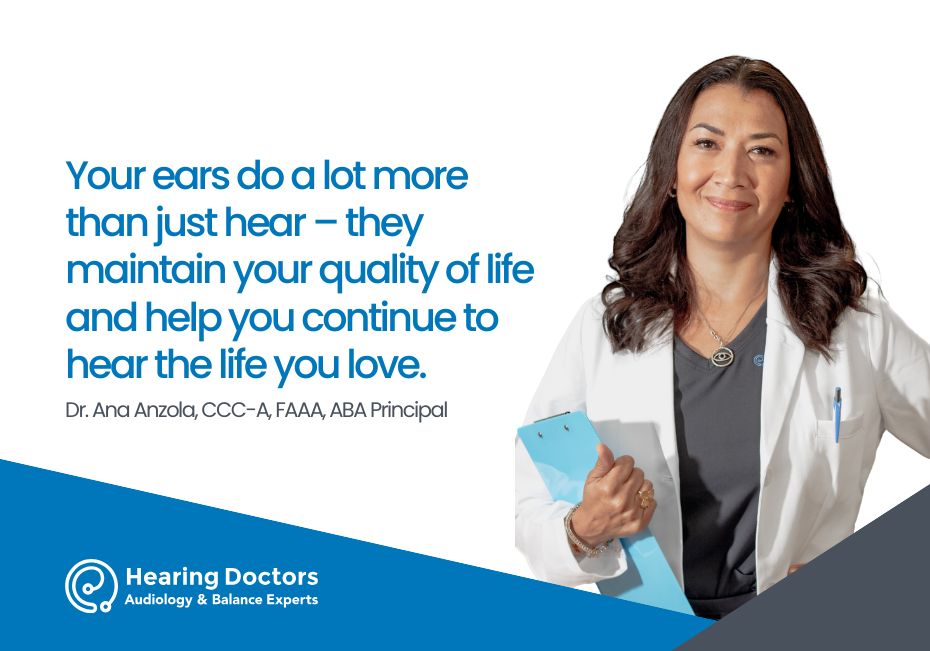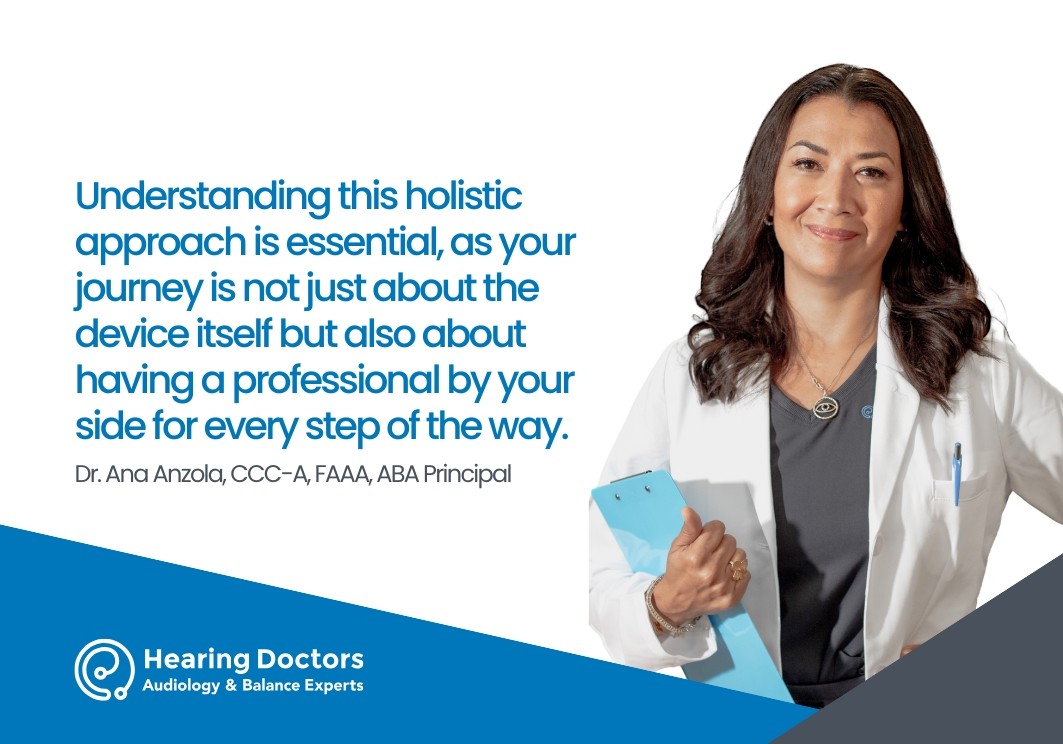Jun 3, 2025
Dr. Ana
Anzola, CCC-A, FAAA, ABA Principal
Hearing loss can affect anyone, and understanding its different types is key in managing and treating it effectively. Whether you’re experiencing difficulties in hearing yourself or seeking knowledge to help a loved one, knowing the differences between sensorineural, conductive, and mixed hearing loss can guide you toward obtaining the right care. With the use of advanced technology and personalized solutions, you can improve not just your hearing, but your quality of life.
Sensorineural Hearing Loss
Sensorineural hearing loss is the most prevalent type of permanent hearing loss. It occurs due to damage to the hair cells in the cochlea or the auditory nerve paths that convey sound signals to the brain. You might notice that speech sounds muffled, or you may struggle to understand conversations even in quiet environments. Common causes include:
Aging (Presbycusis): This is a gradual loss of hearing that happens as you grow older.
Noise Exposure: Consistent exposure to loud noises can damage the delicate hair cells in your inner ear.
Genetic Factors: Some people have a genetic predisposition to this form of hearing loss. Accurate diagnosis and management by a qualified audiologist are crucial in handling sensorineural hearing loss. Treatment often includes the use of advanced hearing aids, which are finely tuned to your specific hearing requirements.
Conductive Hearing Loss Conductive hearing loss happens when sound waves are obstructed from passing through the outer or middle ear. If you’re experiencing the sensation of sounds seeming quieter than usual, you might be facing conductive hearing loss. Common causes include:
Ear Infections: These cause a buildup of fluid, impacting sound transmission.
Earwax Buildup: Excess earwax can block sound waves from reaching your eardrum.
Osteosclerosis: This is when the tiny bones in the ear (ossicles) become fixed and can't move properly.
Abnormalities: Conditions such as perforated eardrums or absent ear structures can also lead to this issue. Treatment for conductive hearing loss often involves medical or surgical interventions. With a comprehensive diagnostic assessment, you receive the best possible conductive hearing loss treatment tailored for you, optimizing your hearing health efficiently.
Mixed Hearing Loss: A Combination Challenge
Mixed hearing loss involves both conductive and sensorineural components. This blend can make diagnosis and treatment a bit more complex, as it requires addressing both the inner ear damage and the conductive issues. This type of hearing loss might develop from any combination of the causes listed for conductive and sensorineural hearing loss. For instance, prolonged noise exposure could lead to sensorineural damage, while a concurrent ear infection could contribute to conductive problems. Treatment for mixed hearing loss often mixes management with the use of hearing aids tailored to handle dual challenges.
The Importance of Professional Diagnosis and Care
Navigating the complexities of hearing loss requires a trusted partner in care. By partnering with a team of licensed experts, you receive exceptional service with advanced technology, such as real ear measurements to ensure optimal fit and hearing aid performance. A successful hearing care journey is ongoing, and we are committed to walking alongside you, adjusting treatments as your hearing evolves. Whether it’s through comprehensive balance testing or personalized hearing care, we ensure that each step toward better hearing is backed by competency and compassion. Book an appointment with us today or contact your closest clinic to get started on your hearing health journey!
Popular Blogs

Jun 3, 2025
Dr. Ana
Anzola, CCC-A, FAAA, ABA Principal
Understanding Types of Hearing Loss: Sensorineural, Conductive, and Mixed

May 21, 2025
Dr. Ana
Anzola, CCC-A, FAAA, ABA Principal
What Impact Is Artificial Intelligence Having on Hearing Aid Technology?

Apr 28, 2025
Dr. Ana
Anzola, CCC-A, FAAA, ABA Principal
Do You Think You’re Too Young for Hearing Loss?

Apr 15, 2025
Dr. Ana
Anzola, CCC-A, FAAA, ABA Principal
The Best Hearing Aids in 2025: Insights From a Doctor of Audiology

